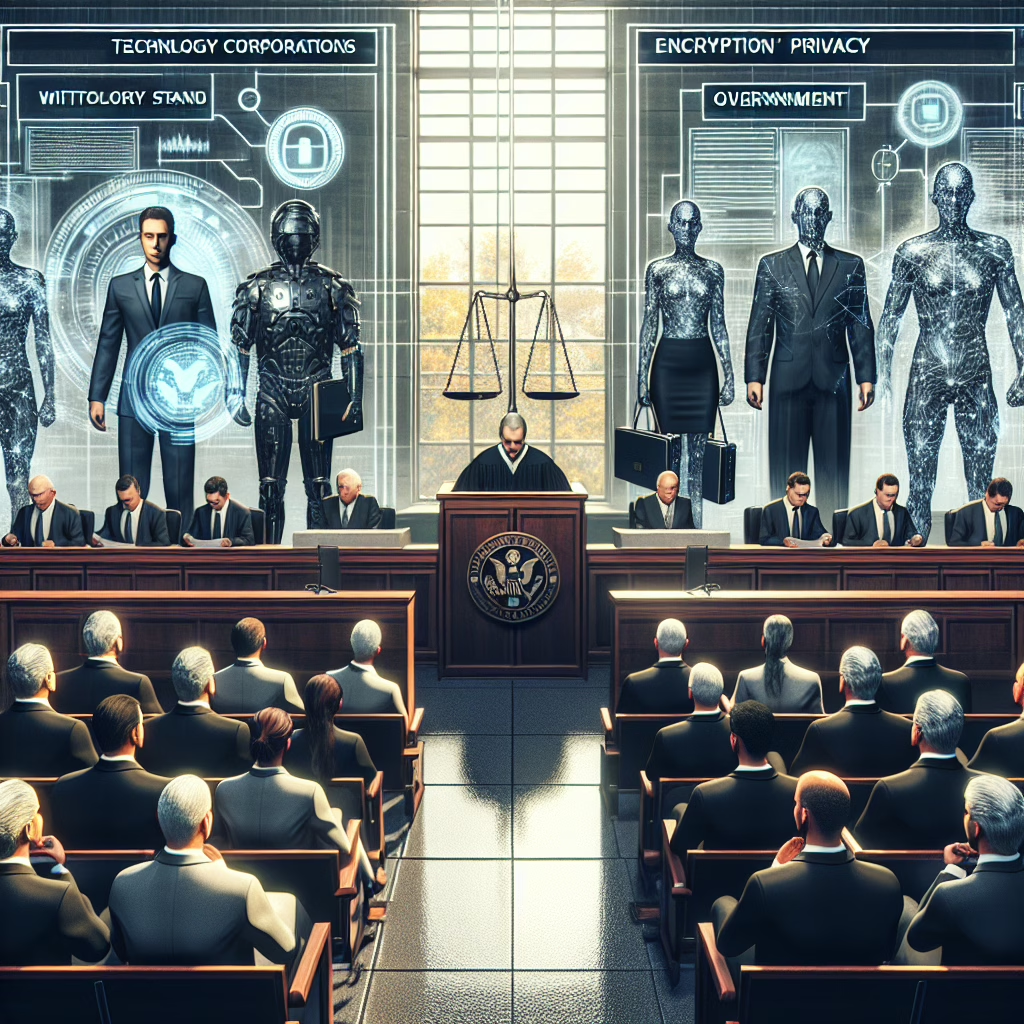In a twist that could only come from a tech drama, Apple has decided to take on the UK government over its request for an encryption backdoor. Yes, you heard that right! In the epic saga of encryption and privacy, Apple is stepping into the ring to defend our digital sanctuaries.
The Great Encryption Debate
Imagine a world where your private conversations, shopping habits, and Netflix binge-watching schedules are open for everyone to see. Sounds like a dystopian novel, right? Well, that’s what the UK government is asking for when it comes to their requests for encryption backdoors. Apple has stood firm, stating that creating such backdoors would compromise user security and privacy. After all, if you can sneak in through a backdoor, so can the bad guys!
Why Is This Important?
This isn’t just about Apple being a tech giant flexing its muscles; it’s about safeguarding our digital lives. The UK government believes that access to encrypted data is crucial for national security. They argue that without these backdoors, law enforcement agencies may struggle to combat crime effectively. But let’s be real: creating a backdoor is like building a secret passageway into your house while insisting no one will ever use it for nefarious purposes.
- Once a backdoor exists, it could easily fall into the wrong hands.
- Hackers and malicious entities would likely exploit these vulnerabilities.
- Apple’s Chief Security Officer has emphasized that compliance could jeopardize user integrity.
The Legal Showdown
The legal battle has begun, and it promises to be more thrilling than a season finale of your favorite crime drama. Apple has officially filed a lawsuit against the UK government, challenging the legitimacy of their demands for an encryption backdoor. This move has sparked heated discussions around privacy rights and digital freedom.
As we dive deeper into this legal labyrinth, it’s important to remember what’s at stake. Users deserve to have their data protected from prying eyes—whether those eyes belong to hackers or government entities. With privacy concerns growing by the day, Apple’s lawsuit is more than just a corporate tussle; it’s a stand for individual rights in our increasingly connected world.
The Public’s Reaction
Public opinion on this matter seems as divided as a room full of people trying to decide on dinner—some favor the government’s stance on security while others rally behind Apple’s commitment to privacy. Social media is abuzz with memes comparing the situation to classic superhero battles: Apple as the heroic defender of personal data versus the government as the villainous entity demanding access.
- Proponents argue that security should come first.
- Opponents believe in the sanctity of user privacy.
This public discourse highlights an essential aspect of modern life: we live in an age where technology shapes our interactions and how we protect our information. As individuals grapple with their own comfort levels around encryption and surveillance, Apple’s case serves as an important litmus test for how far we’re willing to go in sacrificing privacy for perceived safety.
The Bigger Picture
This lawsuit isn’t just about Apple versus the UK government; it’s part of a larger conversation about global encryption standards and user rights. Other tech companies will undoubtedly watch closely to see how this unfolds. If Apple wins, it could set a precedent that empowers users everywhere—after all, nobody wants their secrets laid bare!
On the flip side, if the government prevails, we may face a future where privacy becomes an afterthought in favor of security measures that could potentially endanger us more than they protect us.
Your Thoughts Matter!
The legal showdown between Apple and the UK government raises vital questions about how we balance privacy, security, and technology in our daily lives. What do you think? Should companies like Apple be required to provide access to encrypted data? Or should they stand firm in protecting user privacy? We’d love to hear your thoughts on this riveting topic—feel free to share them in the comments below!
A big thank you to TechRadar for providing such insightful coverage on this important issue! You can read the original article here.

